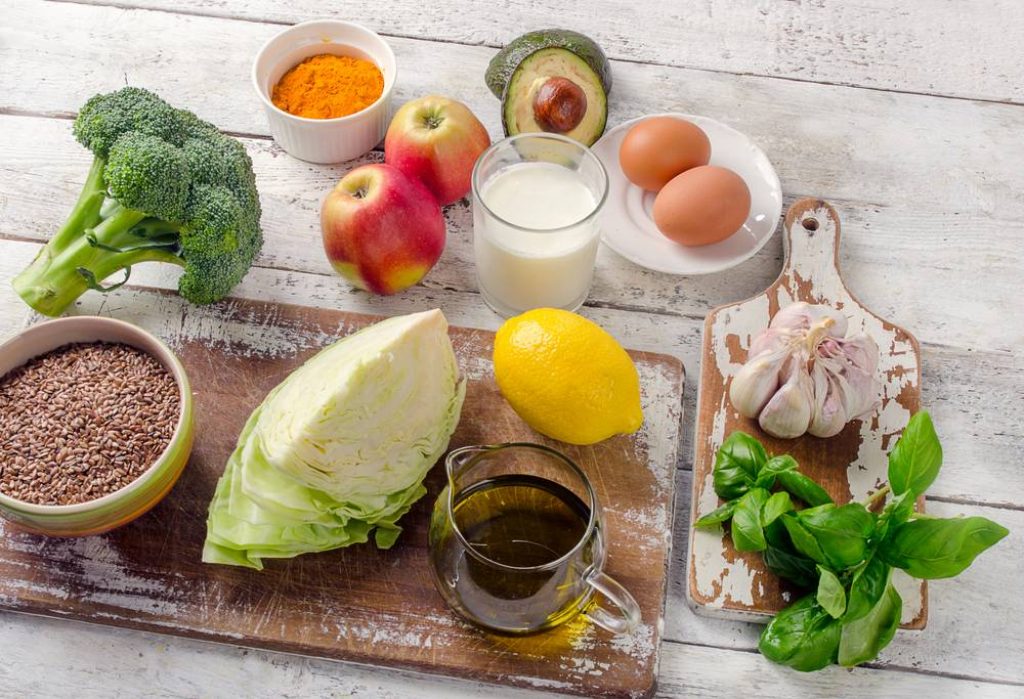
Foods Best For Hepatitis Prevention
Hepatitis is a malady that adversely affects the liver. Simple cases of hepatitis usually involve inflammation of the liver and a condition known as “fatty liver”. However, this condition can get worse and lead to scarring of the liver (cirrhosis) and reduced liver function. Eating properly can help prevent and treat these conditions.
Related Topics (Sponsored Ads):
It is important to realize that everything you eat and drink must be acted upon by the liver. Eating the right foods is crucial to your overall well-being. Keeping a proper diet can improve the health of your liver. Not only will it support a healthy immune system, but it also has a direct effect on weight management. It’s important to keep your weight in a healthy range, because being obese or being overweight can lead to hepatic steatosis, a condition caused by excess fat buildup in the liver. This can spur or worsen a hepatitis condition. Also, being overweight can lead to developing type 2 diabetes.
Below are discussed the foods best for prevention and treatment of hepatitis, foods to avoid and some helpful tips.

Fruits and Vegetables
Fruits and vegetables of almost any type, particularly vegetables, provide a wide array of necessary nutrients, including: vitamin A, vitamin B6, vitamin C, folate, and potassium. Studies have suggested that leafy green vegetables may be especially helpful in decreasing the fatty acid composition in your liver. However, in order to get the widest range of vitamins and other nutrients, you should vary the types you eat. Consuming between 1 and 3 cups of vegetables each day is recommended. Also, it is most beneficial to eat fresh and uncooked vegetables (like in salads). If you need to use canned vegetables, buy no-salt and no-sugar-added varieties.
Protein
A diet with lots of protein is very important, because proteins help repair and replace liver cells. In addition to the well known protein foods like, beef, poultry and fish; other good sources of protein are eggs, nuts and soy products. The amount of protein you need to eat daily depends upon your age, sex, and activity level. Normally, seniors and women of child bearing age need to have higher levels of protein. The usual consumption range is between 2 to 6 1/2 ounces of protein per day.
Dairy Products
In addition to being a good source of protein, dairy products also supply calcium, an important nutrient. A good diet should include 1 1/2 ounces of natural cheese or 1 cup of milk or yogurt per day. If you are lactose intolerant, you can substitute fortified soy or nut milk.
Whole Grains Products
These types of foods provide fiber in your diet, which is important because it promotes healthy digestion and bowel function. It is important to eat whole grain products (unrefined / brown) rather than refined/ white kinds. This includes: whole grain breads, whole grain pastas, brown and wild rice, buckwheat and quinoa. It is recommended that adults should eat around 3 to 8 ounces of whole grain foods daily.
Coffee and Green Tea
Contrary to popular belief, the caffeine in coffee can be beneficial for your health – if consumed in moderation. A small amount of caffeine (as little as 100 mg) has been shown to potentially help protect against advanced hepatic fibrosis.
If you are a tea drinker, then consuming green tea can be an enjoyable and healthy part of your diet. This tea contains phenolic catechins, which studies have shown can be beneficial for liver health.
Foods to Avoid
The following types of foods can be harmful for the liver and other parts of your body:
– Foods that are salty or high in sodium content: Salty foods can lead to water retention, consequently raising your blood pressure. This can be detrimental for your liver.
– High sugar content foods and sugar itself: Sugar and sweet foods and drinks are major culprits in causing weight gain. As mentioned above, it is important not to be overweight to help have a healthy liver.
– Food products that are fatty, greasy, processed, frozen, canned, and from fast-food places should be limited.
Tips
– Eliminate or truly limit alcohol consumption.
– Drink six to eight glasses of water per day.
– Do not over eat.
– Create and stick to a regular eating routine that works for you and don’t snack.
– Avoid “convenience foods”.
– Don’t rely heavily on dietary supplements to fulfill your daily nutrient needs.




